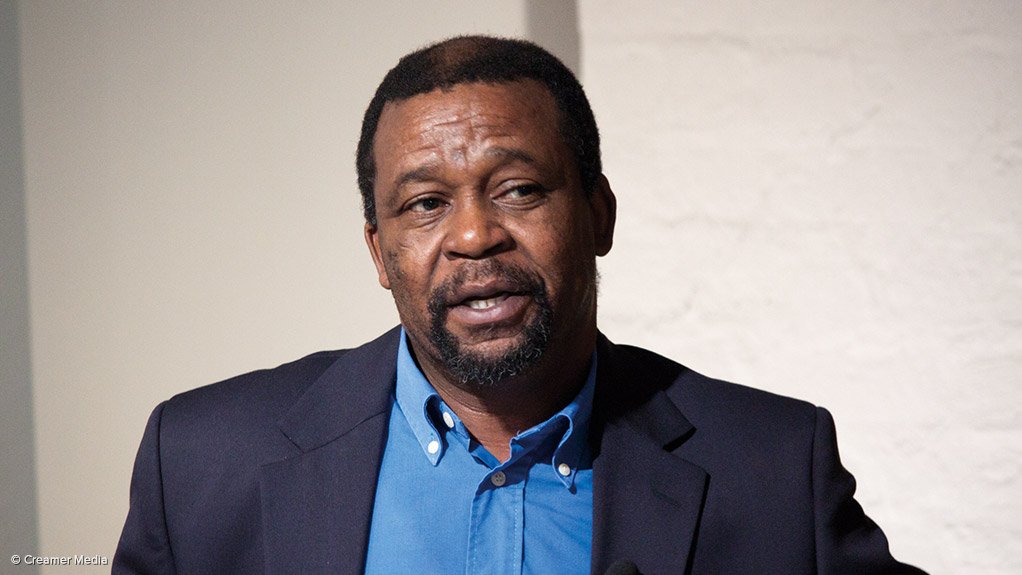Mapungubwe Institute for Strategic Reflection executive director Joel Netshitenzhe delivered the keynote address at the Black Business Summit on Monday, where he was optimistic of South Africa moving towards 4% in economic growth in the next two or three years, provided constraints are dealt with.
His address reflected on the country’s political economy 30 years into democracy and asked “Where is South Africa headed in the next 30 years?”
He noted various ongoing strategies that could ensure positive prospects for the country going forward.
“These are elaborated in the Economic Reconstruction and Recovery Plan: the infrastructure programme; Master Plans for sectors with potential; a strategic African pivot in economic relations; and focussed attention to absorption of the unskilled and semiskilled through speedier land reform, low-end manufacturing and support for micro and informal enterprises,” he stated.
However, he noted that it would take some time before these strategies had a significant impact.
“…but the economy can climb towards 4% growth in the coming two to three years, if we are able to address the binding constraints,” he added.
In discussing the Black Business Summit’s review and interrogation of policy, and legislative instruments that affect overall socioeconomic transformation and inclusive growth in South Africa, Netshitenzhe drew on the argument that politics plays a role in social development. He tracked the evolution of South Africa’s political economy since 1994 by unpacking economic dynamics.
“As we all know, in the decade of the 2000s, economic growth was in the region of 5%, and the unemployment rate was reduced from 31% to 23%. There are many reasons for poor performance in the last decade, both objective (such as the global financial crisis) and subjective (represented by systemic corruption and poor management of infrastructure). As South Africa sought to emerge from these reverses, many of us did not fully appreciate how gruelling it would be to turn the ship around.
“Then, Covid-19, as well as natural and social disasters, struck – slowing the recovery and taking us back many years across most indicators. In other words, as we train our eyes on the horizons ahead, there are many positive and negative lessons to draw from,” he said.
Discussing the evolution of South Africa’s class structure, Netshitenzhe noted that the black middle class was the majority in this segment, while noting the fragility of the positions of some.
He said while black people formed the majority in skilled and professional categories, the same was not true at senior and top management levels.
However, he noted that black asset ownership in housing, land and capital had seen improvements.
“In mining, for instance, 39% of assets are owned by black people; and as we heard at the Worker Share Ownership Conference last week, the share value of ESOPs (Employee Stock Ownership Plans) is about R70.3-billion, with R3.3-billion of dividends paid last past year. But, as in many areas of social transformation, the glass is still less than half-full,” he noted.
Meanwhile, he noted that while the South African economy continued to include more and more black people, there were many, who were mostly black, who were still marginalised and excluded.
“And so, access to the political kingdom has enabled important changes in the country’s political economy; but this has been inadequate. South Africa is capable of high rates of growth; but this depends on how the State guides economic activity; and how those who own capital respond to national imperatives,” he said.
Netshitenzhe also spoke of the emergence of the “black capitalist class” and cautioned that a small elite will disproportionately benefit from empowerment and said the challenges will be how to ensure that broader society is part of this. Furthermore, he warned that “that capitalist class formation is often an anarchic phenomenon” which could result in State capture.
“We should, therefore, develop strategies to manage this negative phenomenon. Otherwise, such forces will become more brazen – and some will even try their luck in the political terrain, so they can capture the State and reduce it to a criminal enterprise,” he stated.
EMAIL THIS ARTICLE SAVE THIS ARTICLE ARTICLE ENQUIRY
To subscribe email subscriptions@creamermedia.co.za or click here
To advertise email advertising@creamermedia.co.za or click here











